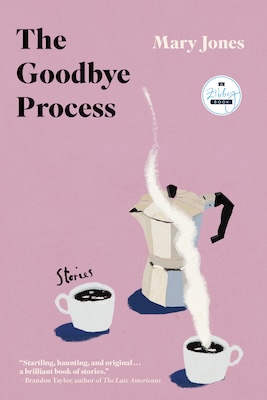When people think about loss, what usually comes to mind is the death of a loved one, but there are so many other things we have to let go of, and say goodbye to, as we move through life—relationships (romantic and otherwise), youth, health, homes, innocence, life as we know it. We are always saying goodbye to something, letting something go.
About half of the stories in The Goodbye Process share a central theme of letting go, and moving on. I’ve always gravitated towards these kinds of stories in literature. They are stories of growth and the human capacity for change, but more than anything, they are stories of resilience. How do we survive what happens to us? How do we go on? Who are we on the other side?
In the following books, the characters find themselves at the ends of various things—ready (or sometimes not) to let go and move on.
We the Animals by Justin Torres
In We the Animals three brothers navigate their tumultuous childhood and struggle to make sense of their parents’ relationship. As the unnamed narrator matures, he comes to understand that in order to form his own identity and find his place in the world, he must let go of his childhood innocence and separate from his family.
Small Things Like These by Claire Keegan
Small Things Like These is set in a small Irish town in 1985 during the weeks before Christmas. When Bill Furlong, a coal merchant, discovers a local convent’s cruel treatment of unmarried mothers, he is forced to let go of his fear of societal expectations and act, regardless of the inevitable life-changing consequences.
Everything I Never Told You by Celeste Ng
Everything I Never Told You explores the aftermath of a teenage girl’s mysterious death in 1970s Ohio. It delves into the family’s secrets, misunderstandings, and the process of coming to terms with loss and finding a way to move on.
All Fours by Miranda July
All Fours has been described as a middle age coming-of-age story. In this novel, the 45–year-old narrator plans a cross-country drive from Los Angeles to New York, only to find herself holed up at a motel about thirty minutes from her home for two weeks. This leads her on a wild journey of self-discovery in which she lets go of her ideas of what family is, what emotional and physical intimacy mean, and what getting older does and doesn’t change.
Interpreter of Maladies by Jhumpa Lahiri
The characters in all of the stories in Jhumpa Lahiri’s Pulitzer Prize winning short story collection Interpreter of Maladies navigate the challenges of letting go of past regrets, unfulfilled desires, and cultural expectations. Through glimpsing key moments in their lives, Lahiri shows the emotional toll of loss and letting go.
Lucy by Jamaica Kincaid
In Lucy, the narrator, Lucy, leaves her family and home in Antigua to work as an au pair for a wealthy family in the United States. While there, she gains a deeper understanding of her relationship with her mother, as well as her relationship to her homeland, ultimately releasing herself from both and redefining herself on her own terms.
Wild by Cheryl Strayed
The memoir Wild follows Strayed as she hikes 1,100 miles on the Pacific Crest Trail four years after her beloved mother’s death from cancer. Strayed confronts her grief head-on, processing memories of her mother’s death and the dissolution of her marriage. Each step is a step toward letting go of her pain, and moving on from her past mistakes and traumas.
Housekeeping by Marilyn Robinson
Housekeeping begins in the aftermath: Ruthie and her sister Lucile’s mother has committed suicide (and long before this, their grandfather died in a tragic train accident). They are abandoned by their caretakers, and left in the hands of their eccentric and unconventional Aunt Sylvie. The tension in this novel comes not necessarily from wanting to know what will happen, but how (and if) the girls will survive what has already happened.
Evening by Susan Minot
An interesting exploration of this theme occurs when characters are not able to let go and move on… In Evening by Susan Minot, Ann Grant is at the end of her life and consumed with memories of a brief love affair that took place 40 years (and three marriages) earlier when she was just 25. “If every life had high points and low points, there would have to be one point higher than the rest—the highest point in one’s life. So, she thought, this had been hers.” This affair is something that the narrator never fully recovers from; something she dwells upon even in her final moments.
Read the original article here

